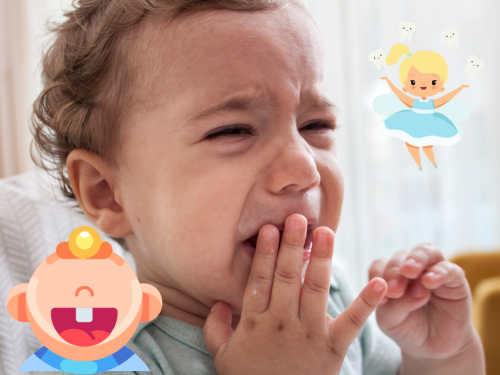Staying hydrated isn’t just good for your body – it’s a key player in maintaining...
Read More- 1-530-283-2811
- Gregory L Sawyer DDS
- Family Dentistry & Orthodontics
- 2034 E. Main St. Quincy CA 95971



You may be wondering why your child is experiencing tooth loss, specifically the baby teeth that have just come in. It’s crucial to be able to comprehend all the changes your child will experience as a parent. This includes understanding that they will eventually have the “baby teeth” that will fall out in a predetermined time. Here’s a look at how and when children’s teeth will start to fall out.
What Are Baby Teeth?
The baby teeth or, as dentists refer to them, the “deciduous” and “primary” teeth are present in the jaws at birth, but they usually don’t appear until the baby turns 12 months. A complete set of 20 primary teeth will be present over the next three-years. The child will then be able to chew on their own. They will soon lose their baby teeth, though not all at once, but you should know why this is occurring.
Why Do Baby Teeth Fall Out?
Baby teeth serve as “placeholders” to adult or permanent teeth. The bones in your child’s jaw start to grow around the age of 4. There may be spaces between your child’s permanent teeth. The final baby teeth should be lost around the age of 12. Your pediatric dentist should be seen regularly to ensure that permanent teeth are properly coming in and that there is enough space.
An Overview Of The Whole Process
Your child will experience all of this in two distinct stages. At 6 months old, your baby will start to get teeth. This will continue until age 3. Your child will lose all their baby teeth before the age of 12. Your child will have 32 permanent adult teeth by the time they reach their teen years. It’s important that they take good care of their permanent adult teeth, but they should also take care of their baby teeth for various reasons.
It Is Important To Care For Baby Teeth
It is common to believe that baby teeth don’t need the same care as permanent teeth because they fall out. Children’s teeth require the same level of care as adults. Baby teeth can become infected if they are not properly cleaned, flossed, and brushed regularly. It is a good idea to schedule an appointment with your local dentist if you believe that your child is currently experiencing pain or discomfort even though they only have baby teeth.
Dr. Sawyer is happy to assist your child if they have not yet seen a dentist. Contact him today if you’re in the Plumas county area to find out what opportunities they have for young children with baby teeth that may be experiencing problems.

Learning about your dental health is so important. Set an appointment today to see if I can help you! Call: 530-283-2811
Office Hours:
Tuesday, Wednesday, Thursday, & Friday
11 a.m.-7 p.m.
Evenings & Saturday by Appointment
Address:
2034 E Main St
Quincy, CA 95971
In Business Since 1984
Staying hydrated isn’t just good for your body – it’s a key player in maintaining...
Read MoreAre you looking to enhance your smile with professional teeth whitening options? Professional whitening, performed...
Read MoreAre you considering getting dental braces but unsure of what to expect during the application...
Read MoreWelcome to the world of pediatric dentistry, where we focus on ensuring lifelong oral health...
Read MoreAddress:
2034 E Main St
Quincy, CA 95971
Phone:
(530) 283-2811
Business Hours:
Tuesday, Wednesday, Thursday, Friday:
11 a.m.-7 p.m.